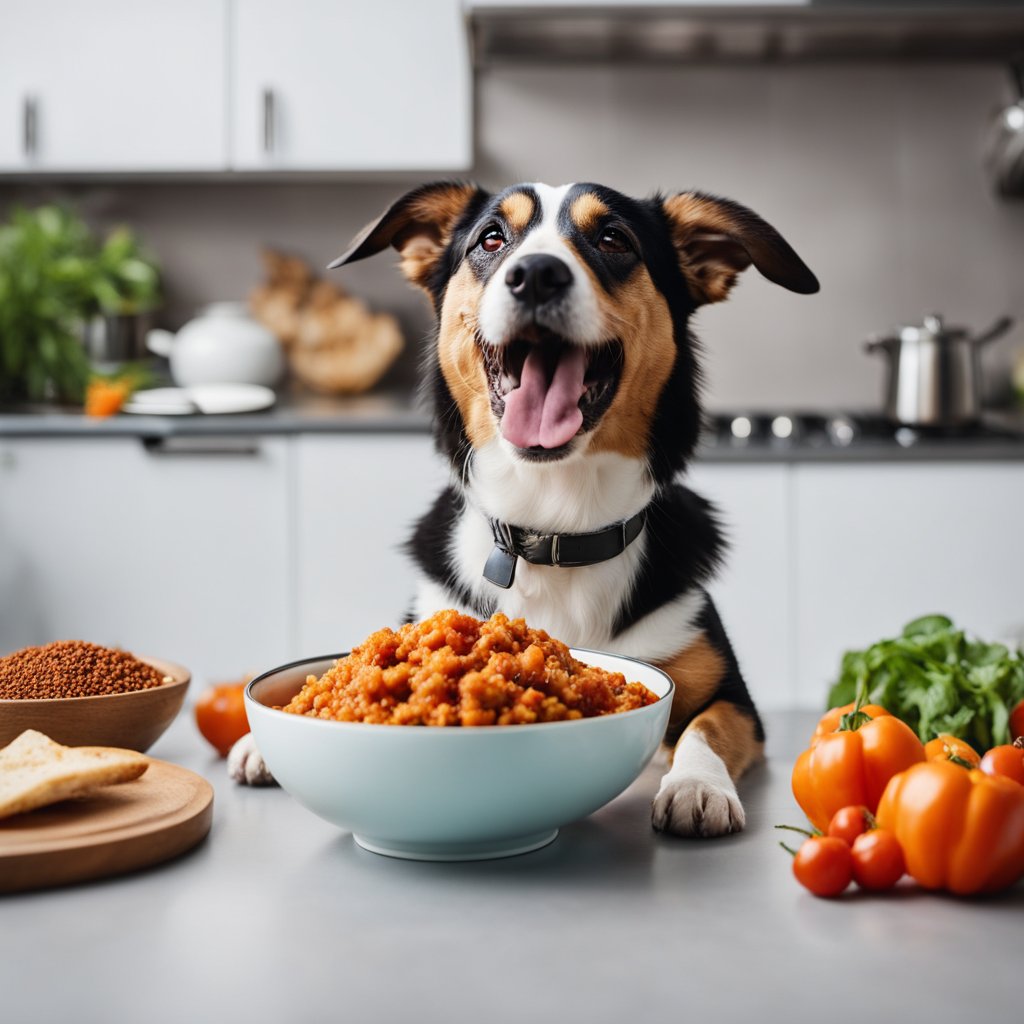Can Dogs Eat Spicy Food? A Clear and Knowledgeable Answer
Dogs are known for their love of food, and it’s not uncommon for them to beg for a taste of whatever their owners are eating. However, as a responsible pet owner, you may wonder if it’s safe to share your spicy meals with your furry friend. Can dogs eat spicy food? The short answer is no. While dogs can technically eat spicy food, it’s not recommended due to the potential health risks.
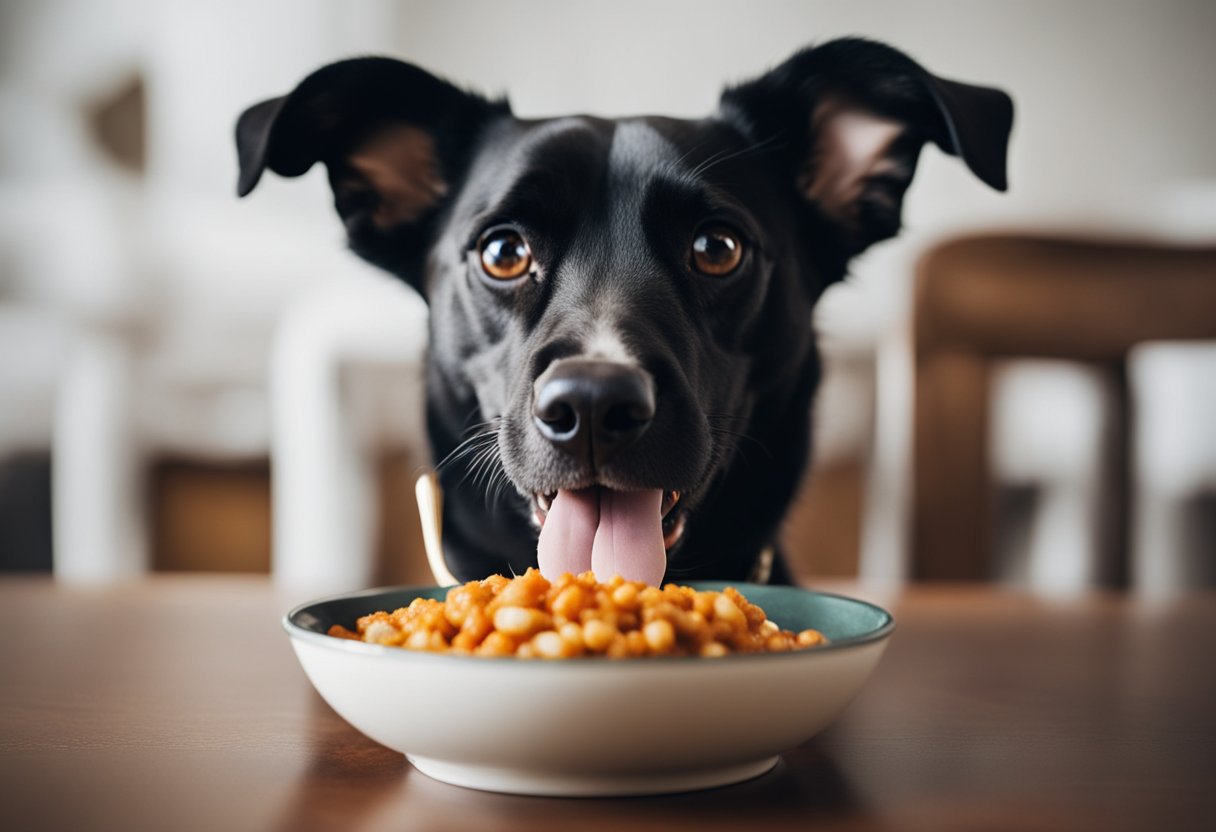
Canine Dietary Needs Dogs have different dietary needs than humans, and their digestive systems are not designed to handle spicy foods. Spicy foods can cause discomfort and a burning sensation in the mouth and throat, which can be as unpleasant for your dog as it is for you. Additionally, spicy foods can give dogs an upset stomach and cause extreme thirst, leading to vomiting and diarrhea.
Safe Foods for Dogs It’s important to remember that not all human foods are safe for dogs to eat. Some human foods can be toxic to dogs and cause serious health problems. As a general rule, it’s best to stick to a balanced diet of high-quality dog food and treats specifically designed for dogs. If you do want to share human food with your dog, make sure it’s a safe and healthy option.
Key Takeaways
- Dogs cannot eat spicy food due to their different dietary needs and potential health risks.
- Some human foods can be toxic to dogs, so it’s important to stick to a balanced diet of high-quality dog food and treats.
- If you do want to share human food with your dog, make sure it’s a safe and healthy option.
Canine Dietary Needs
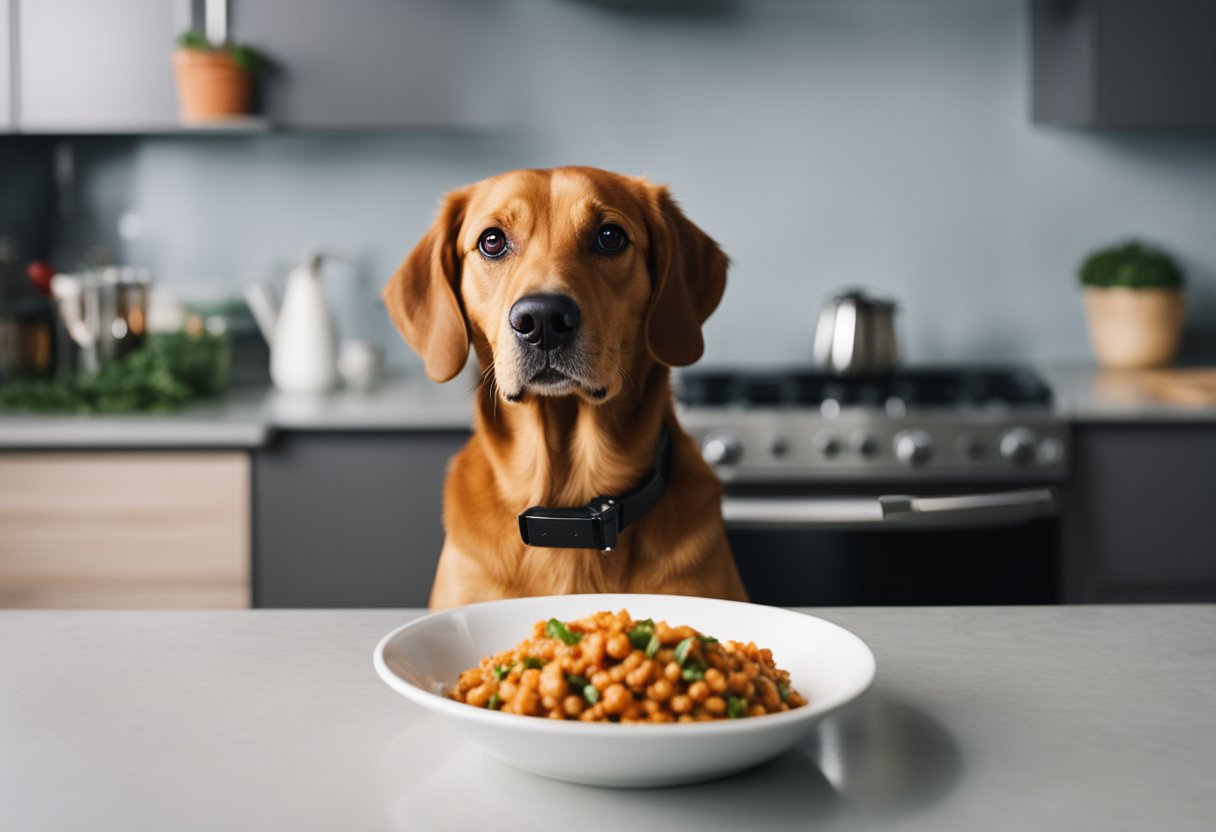
Nutritional Requirements
Dogs have specific nutritional needs that are different from humans. They require a diet that is high in protein and fat, and low in carbohydrates. Dogs also need certain vitamins and minerals to maintain their health. For example, they require vitamin A for healthy skin and vision, and vitamin D for strong bones.
It is important to feed your dog a balanced and complete diet that meets their nutritional requirements. This can be achieved by feeding them high-quality commercial dog food that is formulated to meet their needs. Homemade diets can also be an option, but it is important to consult with a veterinarian or a veterinary nutritionist to ensure that the diet is balanced and complete.
Risks of Spicy Foods
While dogs can eat a variety of human foods, spicy foods should be avoided. Spicy foods can cause stomach upset, vomiting, and diarrhea in dogs. This is because dogs have a different digestive system than humans, and spicy foods can irritate their digestive tract.
Spicy foods can also be toxic to dogs. Capsaicin, the compound that gives peppers their heat, can cause gastrointestinal irritation and even damage to the liver and kidneys in dogs. Additionally, spicy foods can cause excessive thirst, leading to dehydration and other health problems.
In conclusion, it is important to feed your dog a balanced and complete diet that meets their nutritional requirements. Spicy foods should be avoided as they can cause stomach upset and even be toxic to dogs. If you have any concerns about your dog’s diet or health, consult with a veterinarian.
Safe Foods for Dogs
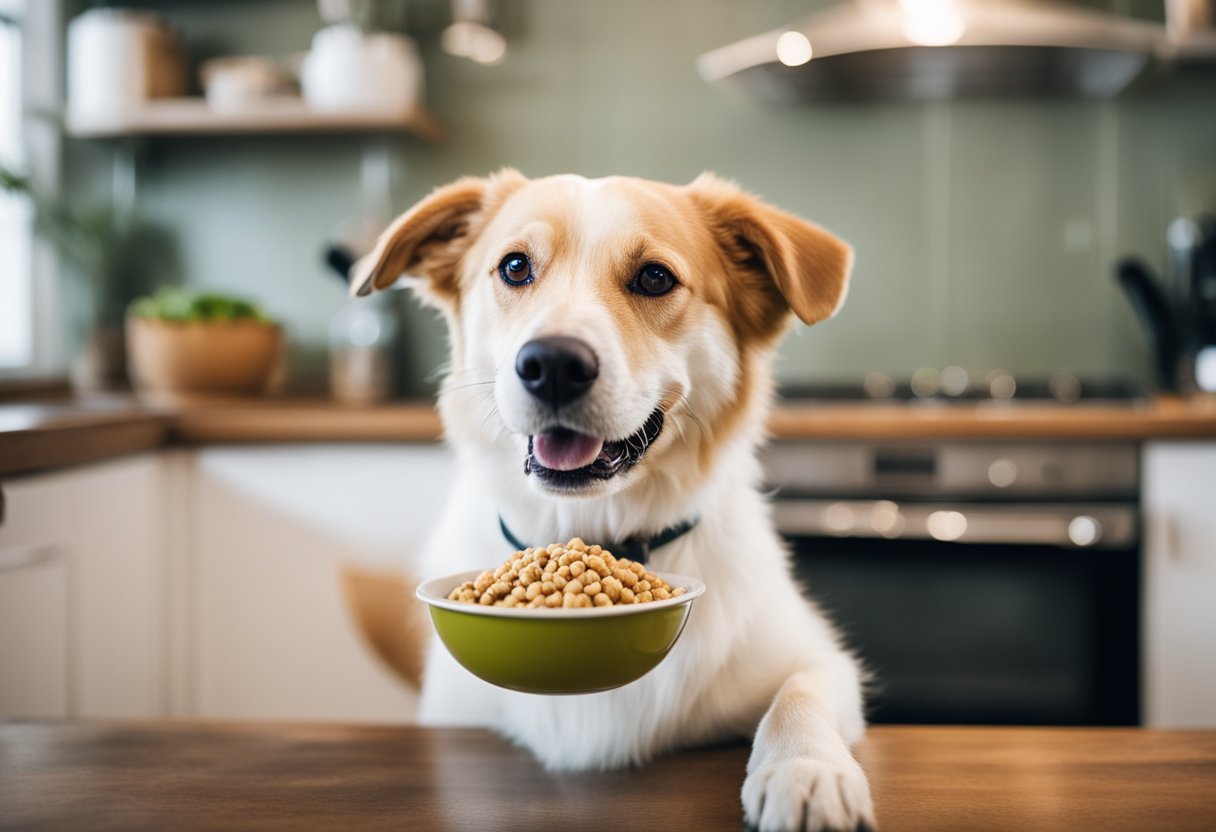
As a dog owner, you want to make sure that your furry friend is well-fed and happy. However, not all human foods are safe for dogs to eat. In fact, some foods that are perfectly safe for humans can be toxic to dogs. One such category of foods is spicy foods. So, can dogs eat spicy food? The answer is no. Spicy foods can cause a range of problems for dogs, including stomach problems, pain, diarrhea, and gas. Spicy food can also cause excessive thirst, leading to vomiting.
Recommended Treats
While spicy food is off-limits, there are plenty of other treats that are safe and healthy for your dog to eat. Here are some examples:
- Fruits: Many dogs love fruits such as apples, bananas, blueberries, and strawberries. These fruits are high in vitamins and minerals and can provide your dog with a healthy snack.
- Vegetables: Vegetables such as carrots, green beans, and sweet potatoes are also good options for dog treats. These vegetables are low in calories and high in fiber, which can help keep your dog’s digestive system healthy.
- Meat: Dogs are carnivores, so it’s no surprise that they love meat. Cooked chicken, turkey, and beef are all good options for dog treats.
Foods to Avoid
In addition to spicy foods, there are several other foods that you should avoid feeding your dog. Here are some examples:
- Chocolate: Chocolate contains a chemical called theobromine, which is toxic to dogs. Even small amounts of chocolate can cause vomiting, diarrhea, and seizures in dogs.
- Grapes and Raisins: Grapes and raisins can cause kidney failure in dogs. Even small amounts can be toxic, so it’s best to avoid them altogether.
- Onions and Garlic: Onions and garlic contain compounds that can damage a dog’s red blood cells, leading to anemia. These foods should be avoided in all forms, including cooked and raw.
By sticking to safe and healthy treats, you can ensure that your dog stays happy and healthy. Remember, if you’re ever unsure about whether a particular food is safe for your dog, it’s always best to err on the side of caution and avoid it altogether.
Resources
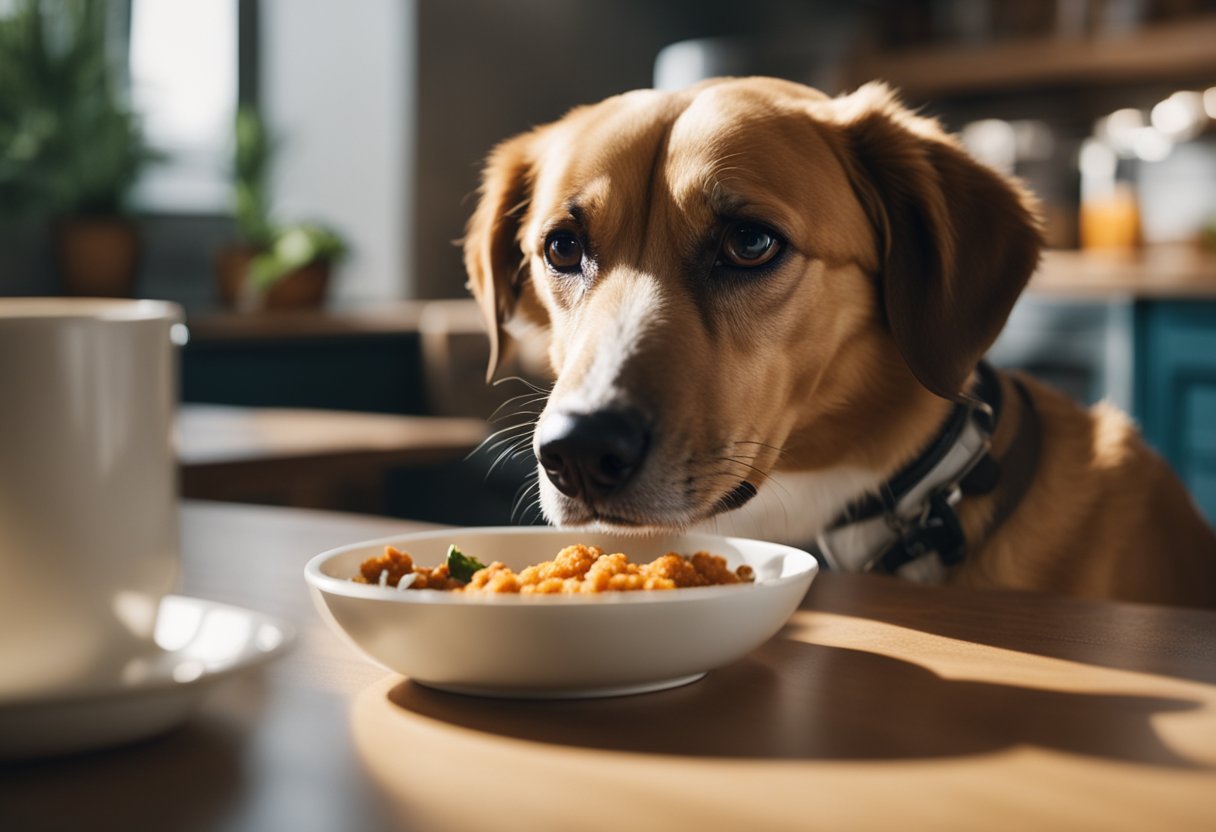
If you’re interested in learning more about whether dogs can eat spicy food, there are a few resources you can check out. Here are a few helpful links:
- Great Pet Care: This article discusses how dogs can taste spicy food and explains why it’s not a good idea to feed your dog spicy food. It also provides some alternatives to spicy food that you can give your dog instead.
- Hill’s Pet: This article explains that dogs should not eat spicy food and lists some of the potential health problems that can result from feeding your dog spicy food.
- Hepper: This article provides a vet’s perspective on whether dogs can eat spicy food and what to do if your dog accidentally eats something spicy.
- PawTracks: This article discusses the potential health risks of feeding your dog spicy food and provides some tips for keeping your dog safe.
Remember, it’s always important to consult with your veterinarian before making any changes to your dog’s diet. If you’re unsure about whether your dog can eat a certain food, it’s best to err on the side of caution and avoid it altogether.
Conclusion
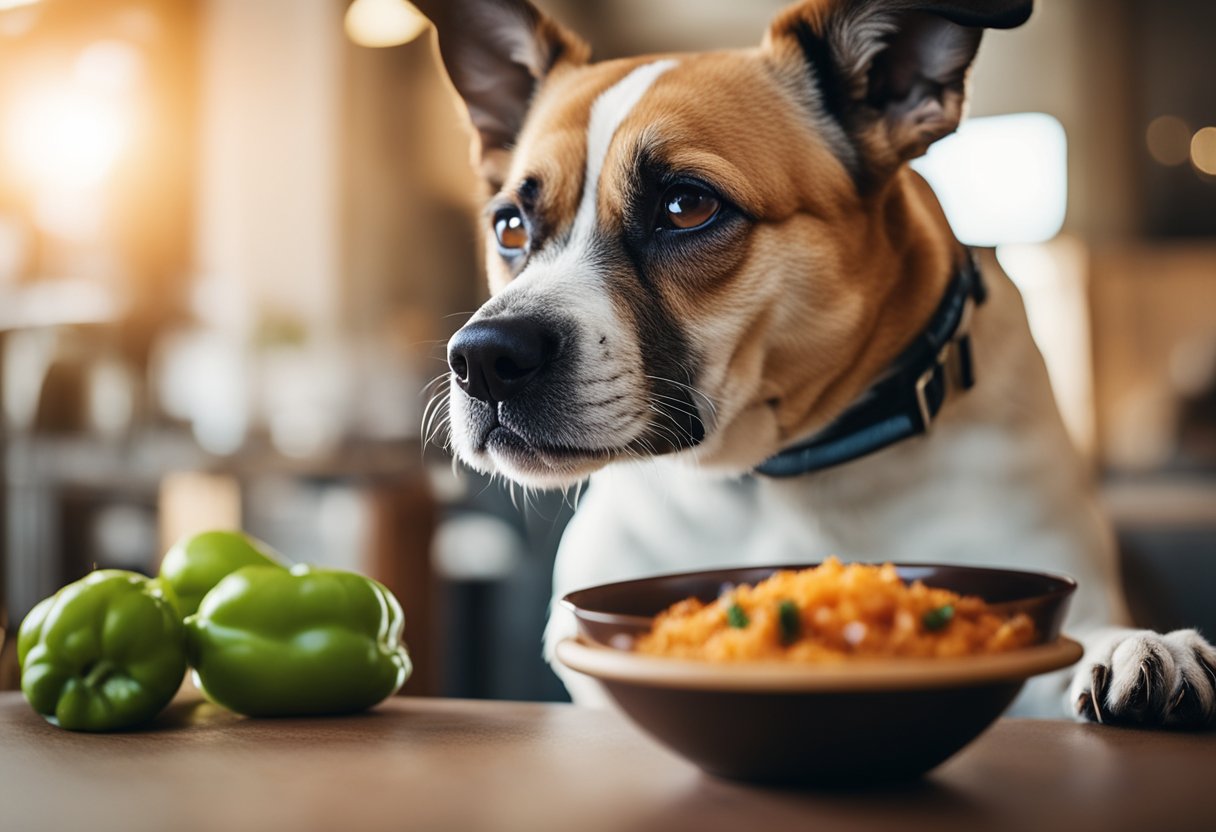
In conclusion, it is not recommended to feed spicy food to your dog. While dogs can eat some human foods, spicy food is not one of them. Spicy food can cause discomfort, upset stomach, and even pancreatitis in dogs.
As discussed earlier, dogs have fewer taste receptors than humans, and they cannot handle the heat of spicy foods. Capsaicin, the active ingredient in spicy foods, can cause a burning sensation in your dog’s mouth and throat, leading to discomfort and pain.
Moreover, spicy food can cause gastrointestinal problems in dogs, including vomiting, diarrhea, and dehydration. If your dog accidentally eats spicy food, it is best to monitor them for any symptoms and contact your vet if necessary.
In summary, it is always best to stick to a balanced and healthy diet for your furry friend. Feed them a diet that is specially formulated for their needs, and avoid feeding them any spicy or human food. By doing so, you can ensure that your dog stays healthy and happy for years to come.
Frequently Asked Questions
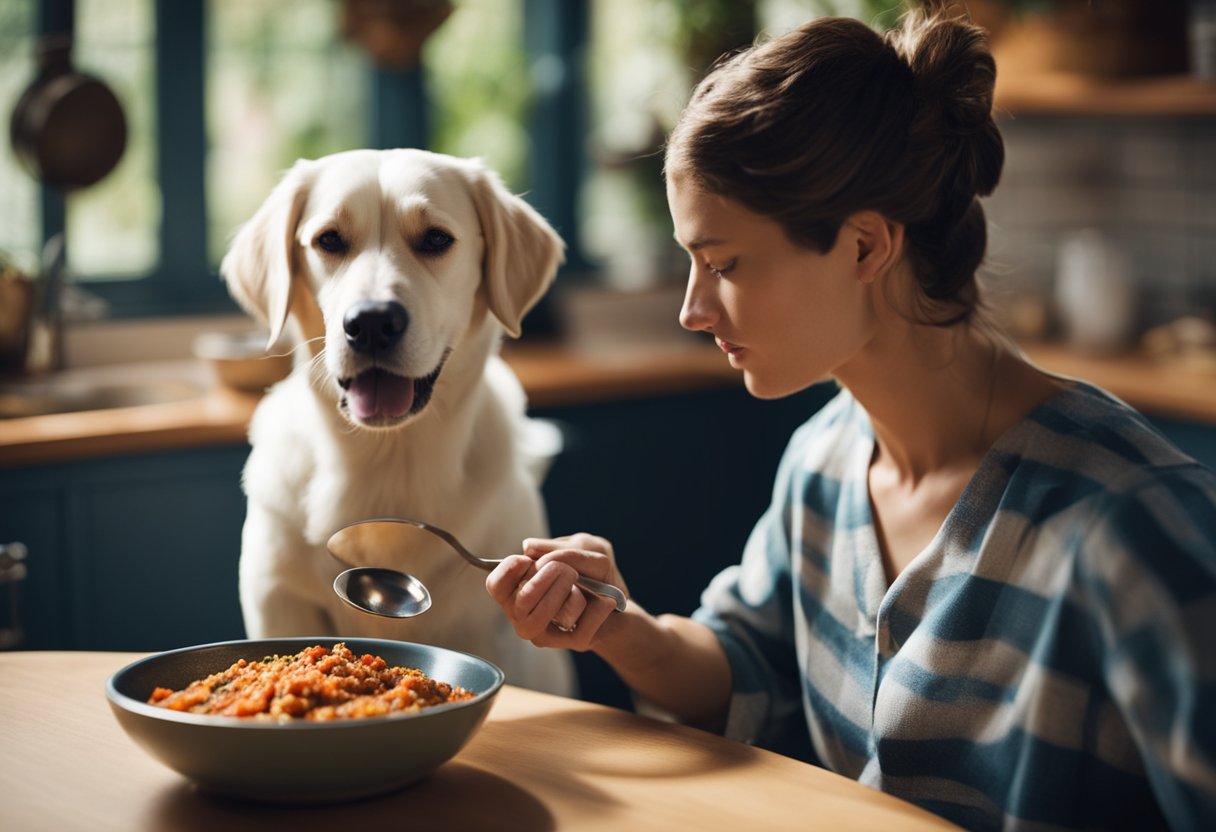
Is spicy chicken safe for canine consumption?
No, spicy chicken is not safe for dogs to consume. Spicy foods contain capsaicin, which can cause various health problems in dogs, including stomach pain, diarrhea, vomiting, and gas. Therefore, it is best to avoid feeding your dog spicy chicken.
What are the risks of feeding spicy food to dogs?
Feeding spicy food to dogs can cause various problems, including stomach pain, diarrhea, vomiting, and gas. Moreover, spicy foods can cause excessive thirst, leading to dehydration and other health problems. Additionally, spicy foods can cause inflammation in the digestive tract, leading to more severe health problems over time.
How do dogs react to the taste of spicy substances?
Dogs can taste spicy substances, but their taste buds are different from humans. They can detect capsaicin, the active ingredient in spicy foods, and feel the heat much more intensely than humans. Therefore, dogs tend to avoid spicy foods and may show signs of discomfort, such as pawing their face or panting.
Can the ingestion of chili peppers harm dogs?
Yes, the ingestion of chili peppers can harm dogs. Chili peppers contain capsaicin, which can cause various health problems in dogs, including stomach pain, diarrhea, vomiting, and gas. Moreover, chili peppers can cause inflammation in the digestive tract, leading to more severe health problems over time.
What should I do if my dog consumes spicy snacks?
If your dog consumes spicy snacks, you should monitor them for any signs of discomfort, such as pawing their face or panting. Moreover, you should provide them with plenty of water to help flush out the spicy substance from their system. If your dog shows any signs of severe discomfort, such as vomiting or diarrhea, you should contact your veterinarian immediately.
Are there any spicy foods that are safe for dogs to eat?
No, there are no spicy foods that are safe for dogs to eat. Spicy foods can cause various health problems in dogs, including stomach pain, diarrhea, vomiting, and gas. Therefore, it is best to avoid feeding your dog spicy foods altogether.
